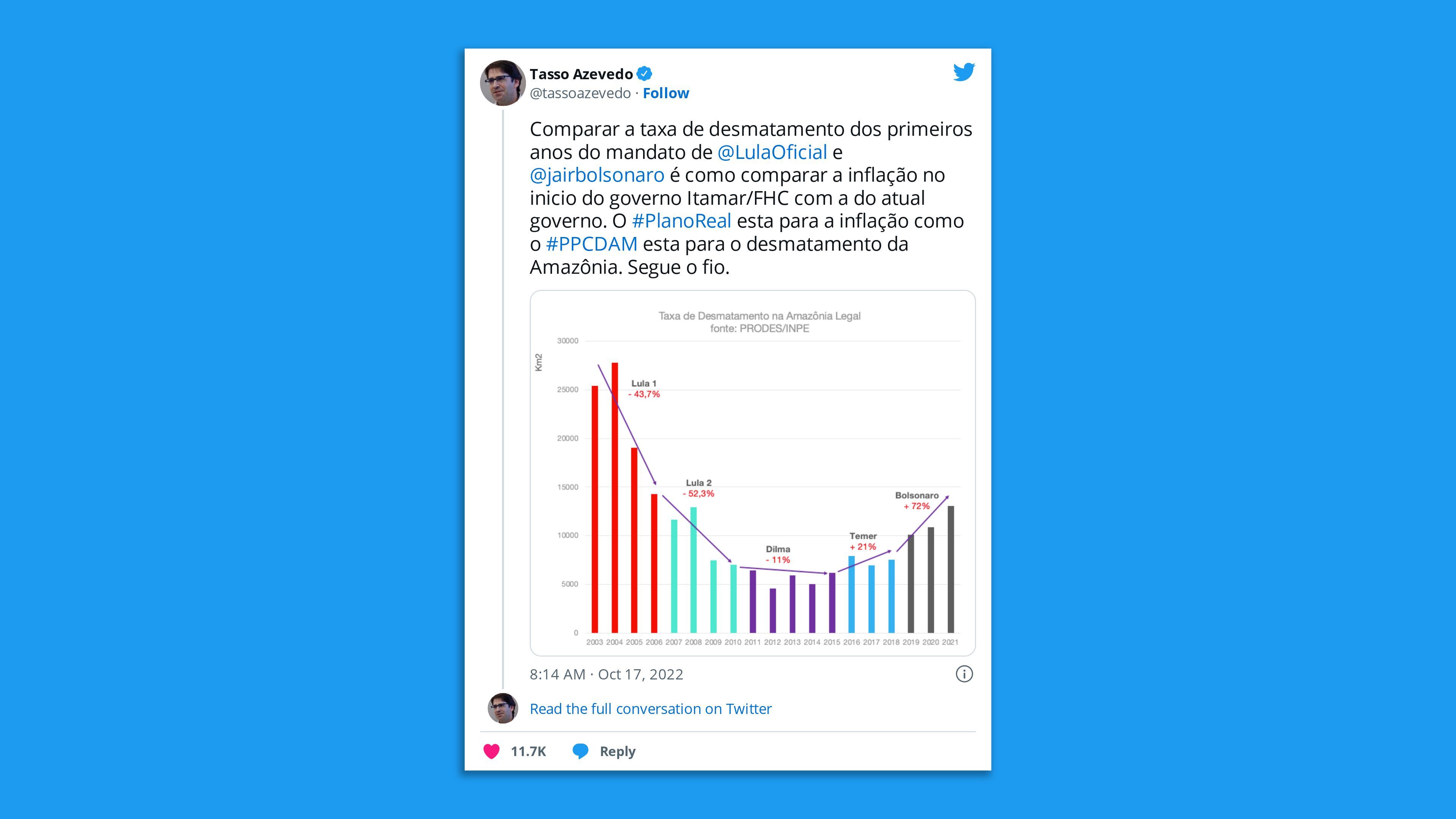The climate implications of Sunday's Brazilian runoff election, which will return leftist former president Luiz Inácio Lula da Silva to office, defeating the hard right Jair Bolsonaro, are set to reverberate worldwide.
Why it matters: Bolsonaro has presided over the highest Amazon deforestation rates in 15 years, while Lula had enacted policies to protect the Amazon.
The big picture: "Lula's victory means the Amazon stands a chance," said Manoela Machado of the Woodwell Climate Research Center, via WhatsApp message on Sunday night.
- The world's largest tropical rainforest is home to an astonishingly diverse species mix. Its trees and soils make it one of the planet's most important carbon sinks and freshwater resources.
- However, the Amazon is slipping into a more unstable state. Studies show that human activities have pushed parts of the rainforest across the dividing line from a net carbon sink to a source.

By the numbers: During Lula's first term in office, from 2003 to 2006, Amazon deforestation plummeted by 43.7%, according to Tasso Azevedo from MapBiomas. During his second term, which lasted through 2010, it dropped by 52.3%.
- This trend was dramatically reversed under Bolsonaro, with Amazon development serving as a key policy plank. Deforestation has surged by 72% during Bolsonaro's time in office.
- His administration hollowed out environmental enforcement agencies, giving more room for illegal land grabs by developers.
Between the lines: Much of the rainforest that has been cut down is used as cattle grazing land for beef exports or for other agricultural products.
- Amazon conservationists, indigenous defenders and journalists have been attacked and killed.
- Roads through the forest, and illegal setting of fires — followed by tree cutting — has proliferated, said Manoela Machado of the Woodwell Climate Research Center. She tracks Amazon fires, deforestation and climate change impacts.
What they're saying: "The priority must be on curbing deforestation and strengthening protection of indigenous peoples," Machado said.
- "There's a lot of damage to be dealt with, including the systemic issue of deforestation and land conversion."
- Bolsanaro hollowed out environmental protection institutions, including those that oversee the Amazon. Machado said the Bolsanaro regime has signaled to would-be developers that seizing land in the Amazon is permissible, and has seen to it that it is profitable as well.
The intrigue: Brazil's National Institute for Space Research (INPE), uses satellites to detect fires and issue alerts when they are spotted in the Amazon. Fires are not native to the rainforest, with most hot spots likely to be human-caused, Machado said.
- This agency's data has been used to track deforestation rates, but it is no longer paired with vigorous enforcement of land protection laws on the ground. The alerts, in effect, only go to the scientific community, which is largely powerless to do anything about it other than track the trends.
- A key task for Lula's government will be to restore the agencies and nongovernmental organizations that work on the ground to protect indigenous lands as well as protected Amazon rainforest.
- Given newfound enthusiasm among world leaders to halt deforestation, Lula may find partners willing to devote funding and personnel to the task.
What's next: Bolsonaro may yet mount a challenge to the election results.







